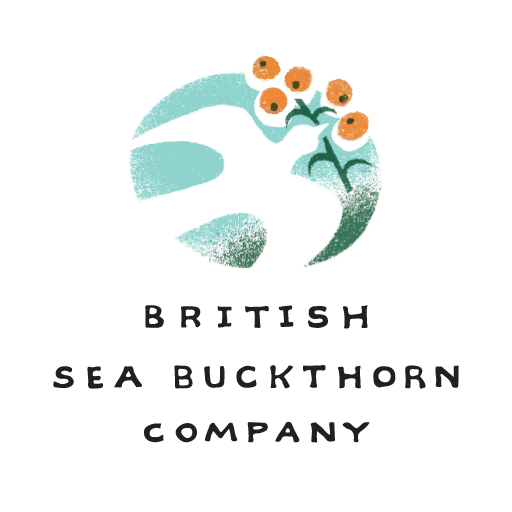There are some great bonuses with farming. Early this morning I was planting out some Siberian plants and saw a bird who has almost become an old friend. The gliding ghostly image of our resident barn owl cruising above the sea buckthorn on the hunt for small mammals. What was really special this morning was the appearance on the other side of the site of a second one. The owl boxes at Devereux farm have been up for maybe ten or more years and it is great to see the potential of a breeding pair in the immediate area.
Just recently previous blogs have been more general comment than sea buckthorn. As I was digging this morning I thought this seemed a good moment to reflect on the important of soil type. Sea buckthorn grows in poor and light soils. 5500m up in the Himalayas; on stony river banks; even establishing in sandstone rock. I remember on my visit to Lisavenko in Barnaul, Siberia being impressed by the crumbly, balanced soil – and reflecting on whether their plants will survive in our heavy clay at Devereux farm.
The soil at Devereux is not uniform. There are some rows of sea buckthorn that are in particularly heavy clay and they are stunted. 4m away and the plants have grown well. There is no doubt that growing in the wrong soil creates a penalty. So as I plant now I use a fork to pull out a metre square of soil, mix it with four shovels of compost so that the clay crumbles in nodules. I then dig the compost rich soil out approx 250mm deep. Throw another shovel of compost into the bottom of the hole, then fork that down into the next 250mm depth of subsoil. This will allow the new plant to grow its tap root deeper, faster and with less energy. As we live in an year of low rainfall ( 450 -600 mm pa), it also means the plant has deeper roots that can access moisture when the top soil has dried out. This double digging is time consuming, but for a plant that may be productive for more than 20 years – extra effort right at the beginning is a sound investment. Every time I walk past the dwarf like rows 13 and 14 in the sea buckthorn I am reminded that the natural environment is my factory floor.It is sometimes challenging but there are normally ways to work with that environment that can alleviate most issues.
It is this acceptance that growing sea buckthorn is possible by working with the environment without use of chemicals that has finally created the decision to apply to the Soil Association to go organic. The product that we import from Germany is Bio dynamic and organic. The fact that there are no chemicals licensed by the EU for use with sea buckthorn means that growing the crop is organic anyway. Reluctance in the past to register has been a recognition that growing sea buckthorn at Devereux farm has been a trial and that we have had pest and disease problems. Now it is becoming clear that most management issues are solvable organically the time has come to register.
Having mentioned the products that we import from germany, one of those is oil capsules. I have been taking sea buckthorn oil capsules since 2009. I find that they keep winter ailments away and I also believe that they provide stamina to keep going when work becomes particularly physical.
Having attended and presented papers at European conferences since 2010, the relationship with european growers, researchers and processors has developed. It seemed right therefore that British Sea Buckthorn Co, as our company based at Devereux farm, should source capsules from Europe. Love or hate EU regulation, but it is the EU regulations that safeguard quality so sourcing capsules that are accredited in the EU provides guarantees.
As most of the plants at Devereux farm come from Siberia there is a natural connection to source the oil for capsules from Siberia. Our links to the Lisavenko Institute in Siberia started because they are the worlds oldest research institute into sea buckthorn having started in 1933. In a world were the environment is becoming increasingly polluted, Siberia’s vast expanses offers a clean refuge from the industrial world. So combining product that comes from this environment, contain oil from the plants that we also grow at Devereux farm and then sourcing it through a company that complies with EU reglations produces several layers of quality guarantee. When one adds the EU organic certification then I feel we have sourced a great product. But just to make sure, I am the guinea pig to test these capsules out and compare them with the brand that i have been loyal to since 2009. After four months they have certainly stood the test, so it won’t be long before these will have ticked my box and be ready for market. Quality is king only if you can honestly say that those qualities are up to the mark.
(( For those who might have seen the original version of this blog I have just updated it. Sea buckthorn growers, Cornish Seaberry, telephoned almost as soon as the blog went live amazed that when planting I dig down 250cm – then fork compost into the next 250cm!! What a difference one little “m” can make. It is of course not 250cm but 250mm. My sea buckthorn capsules might give me stamina to keep digging, but not all the way to Australia.)
